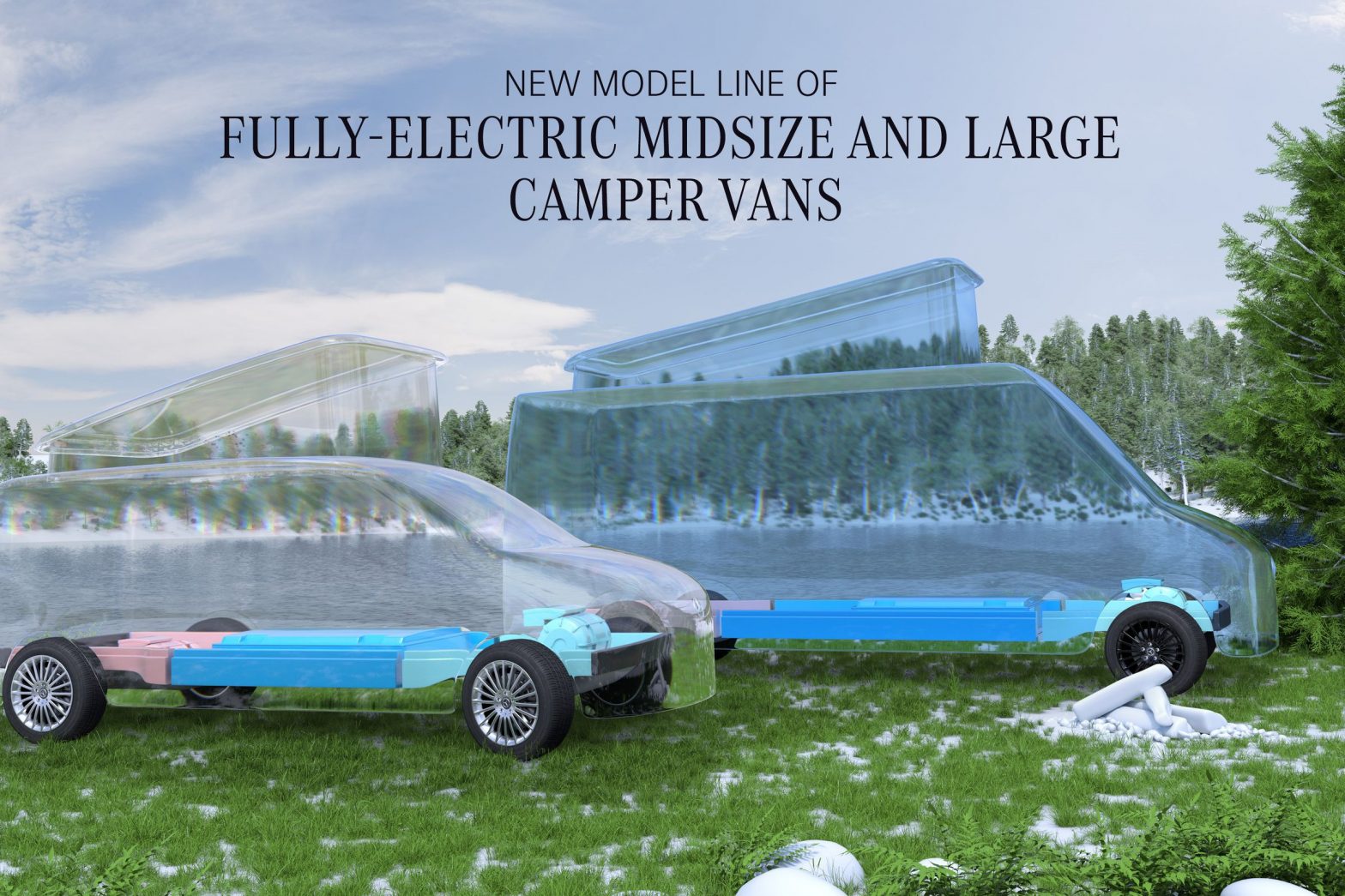/
The German automaker announced a new modular electric van platform that can be adjusted for commercial and personally owned use cases.
Share this story
:format(webp)/cdn.vox-cdn.com/uploads/chorus_asset/file/24660775/23C0142_009_ENG.jpg)
Mercedes-Benz announced a new modular platform called VAN.EA that will underpin the automaker’s new lineup of commercial and personally owned electric vans.
VAN.EA is designed to be flexible and scalable, allowing for both front- and all-wheel drive vehicles. It will also differentiate between commercial fleet-use vehicles and luxury camper vans for personal ownership. A midsize luxury van based on the VAN.EA platform is destined for the US market by 2026, the company said.
The announcement of the new platform is meant to signal Mercedes’ bullish attitude toward the burgeoning electric van market. The company said it was targeting an EV share of up to 20 percent by 2026 and more than 50 percent by 2030.
Previously, Mercedes produced its vans in only two variants: the midsize Metris and the larger Sprinter. Now, the company says it can build vans of varying sizes thanks to the modular VAN.EA platform.
Mercedes says its upcoming slate of electric vans will deliver “high range with an optimal battery capacity,” which will be achieved through aerodynamic design and weight distribution. The scalable architecture will also influence the company’s economies of scale, which will be reflected in the cost.
The new van doesn’t have a name yet, but Mercedes says it will be unlike any other van in its current lineup. The company is hoping to capitalize on its growing market share in the US for van sales, which climbed from 8 percent in 2018 to 16 percent in 2022.
Mercedes is aiming for “lifestyle-oriented customers with the highest standards,” as well as fleet owners of VIP shuttles or even #vanlife digital nomad types who are seeking out a “locally CO2-emissions-free mobile office.”
Mercedes didn’t release any details about the VAN.EA powertrain or battery specs, but it did say it was targeting 310 miles (500 km) of range. The vans will also come with SAE Level 2 driver-assist features, with the potential to upgrade to conditional autonomy Level 3 systems “by the end of the decade.”
The new luxury van will be preceded by an all-electric version of the popular Mercedes-Benz Sprinter van, which is expected to reach the US later this year. That van, which won’t be built on the VAN.EA platform, will have a large 113kWh battery for an estimated range of 248.5 miles (400 km) on highways and 311 miles (500 km) in the city.
Unlike Ford or GM, which have introduced electric vans for commercial use only, Mercedes is aiming for a full slate of tailor-made vans for a variety of use cases, including delivery and camping. The only other company currently targeting this segment for both commercial and private uses is Volkswagen with its all-electric ID Buzz, which was released in Europe last year.
Previously, Mercedes was planning on collaborating on an electric van platform with Rivian but later dropped those plans. Rivian, which makes its EDV (electric delivery van) for Amazon and other customers, was reportedly concerned about spending a lot of money on an expensive new vehicle development project amid a slowing economy.
